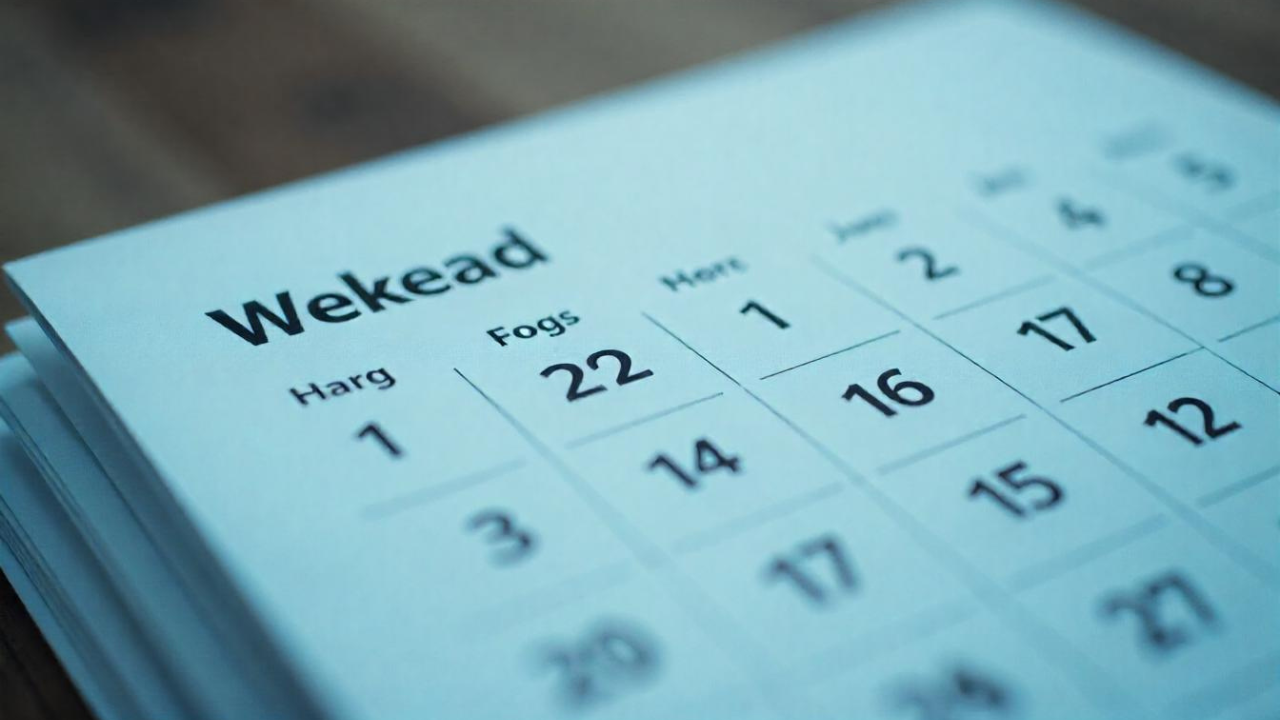Weekends are the cherished pause in our busy lives, offering a chance to unwind, reconnect, and recharge. But have you ever paused to wonder just how many weekends there actually are in a year? Understanding this requires a closer look at the structure of our calendar, including weeks, leap years, and a bit of arithmetic.
The Basic Calculation
A standard year is made up of 365 days and 52 weeks. Each week comprises seven days, two of which are designated as the weekend — typically Saturday and Sunday. To find the number of weekends in a year, the calculation is straightforward:
- 2 weekend days per week x 52 weeks = 104 weekend days
This means there are 52 weekends in a standard year, each consisting of Saturday and Sunday.
What About Leap Years?
Every four years, we encounter a leap year, which adds an additional day to the calendar—February 29th—resulting in 366 days total instead of the usual 365. However, this extra day doesn’t affect the number of weekends. The extra day simply shifts the starting days of subsequent years forward, but the total number of weekends remains 52, with the same 104 weekend days.
Interesting Facts About Weekends
Weekends may seem routine, but their concept and significance are deeply rooted in history and culture. Here are some fascinating insights about weekends:
A Relatively Modern Concept
The idea of the weekend as two days off is a relatively modern construct, emerging during the late 19th and early 20th centuries. Before that, most people worked six days a week, with only Sundays reserved for rest or religious observance.
Cultural Differences in Weekends
Not every culture follows the Saturday-Sunday weekend. For example:
- Many Middle Eastern countries observe Fridays and Saturdays as their weekend.
- Some nations, like Nepal, have single-day weekends.
Productivity and the Work-Life Balance
Studies have shown that weekends are crucial for maintaining mental health, improving productivity, and finding work-life balance. They provide a structured opportunity to recover and rest from the demands of the workweek.
The Rise of the 4-Day Workweek
With discussions around shortening workweeks, some companies and countries have started experimenting with a four-day workweek. This means Fridays or Mondays could eventually be added to the traditional concept of the weekend.
How Are Weekends Spent?
Weekends are as diverse as the people who enjoy them, offering endless possibilities for leisure, productivity, and creativity. Here are common ways people make the most of their weekends:
Relaxation and Leisure
Many individuals use the weekend to relax, be it by sleeping in, watching movies, or enjoying meals with friends and family. These activities help reduce stress and rejuvenate the mind and body.
Recreational Activities
From hiking and traveling to attending social events or visiting parks, they are the perfect time to reconnect with nature and community.
Personal Development
Weekends are an opportunity for hobbyists and enthusiasts to invest in their passions, whether it’s arts and crafts, learning a language, or pursuing new skills.
Household Chores and Errands
For some, they are all about catching up on responsibilities such as grocery shopping, cleaning, laundry, and minor home repairs.
Planning for the Upcoming Week
Many professionals use their weekends to plan, organize, and prepare for the days ahead. This may include meal prepping, calendaring tasks, or setting goals for the next week.
Making the Most of Your Weekends
Each moment is valuable with only 104 weekend days in a year.
- Prioritize What Matters Most
Identify activities that bring you joy and focus on those over the weekend.
- Set Boundaries from Work
Avoid checking emails or overextending yourself with professional obligations.
- Balance Rest and Activities
Strive to balance relaxation with productive use of your time, ensuring you feel both rested and accomplished.
- Plan Ahead
Knowing how you’ll spend your weekend can eliminate wasted time and help you accomplish your goals.
- Try Something New
Explore new hobbies, visit places you’ve never been, or meet new people to make your weekends memorable.
Final Thoughts
While weekdays are often filled with commitments and responsibilities, they provide a much-needed counterbalance. Understanding their number—52 weekends, or 104 days in total—helps highlight how precious they truly are. Whether you spend your weekends relaxing, pursuing hobbies, or tackling home projects, every weekend is a chance to reset and reinvigorate.
How Will You Spend Your Next Weekend?
Now that you know just how many weekends you’ll get in a year, it’s time to make the most of them. Plan something fun, meaningful, or productive for your upcoming days off. Better yet, share some of your favorite weekend traditions in the comments or inspire others by suggesting creative ways to unwind. Here’s to making each weekend count!













Post Comment